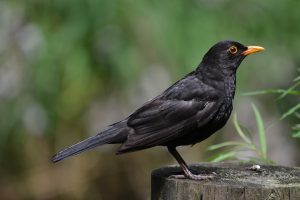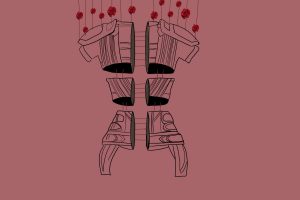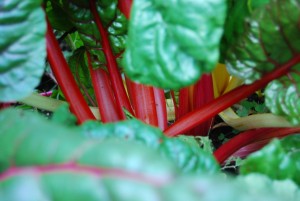
Pest Control
by Jessica Halliday | January 19, 2021
Around mid-March, my mother developed an obsession with killing wasps.
The weather was still cold and grey when I arrived home, the threat of the pandemic having driven me from my university accommodation, but as it began to brighten and grow warmer, a few sluggish and lazy queens found their way into the house. They were large and fat and vaguely threatening, though still too drowsy to pose any real danger. My mother would eliminate them methodically, favouring as her weapon a paperback book or a rolled up magazine. “There will be 5,000 fewer wasps in our garden next year!” she reminded me gleefully each time. Where she got this statistic from, and indeed whether or not it was true, I have no idea, but she said it with such conviction and pride that I found it hard to argue with her. I couldn’t say I cared too much for wasps anyway.
As March wore on and the situation with the virus worsened, my brothers each decided to come home. But it struck me that neither of them had really called our house ‘home’ for some years. Suddenly we were a family again. My mother would remark to me most days that she didn’t think she would ever see us all together for more than a few days again , and yet here we were.
Whether there were just more wasps around or whether she was starting to become more militant in her goal of elimination I’m not sure. Either way, her body count was growing exponentially. At the end of each day she would exclaim, full of pride. how many she had destroyed, and I wondered whether they were still all queens, or if her reign of terror was extending to the wider population. I also had some half-hearted anxieties about the contribution that wasps make to the eco-system, but never really had the energy to voice them. Where before she had only killed the wasps that she came across inside the house, as April came and went she also ventured outside, actively seeking out her prey. My brothers and I would inform her of a place where we had seen a wasp, and a look of steely determination would appear on her face as she strode with purpose to search for it. I think this quest of hers amused us somewhat. It was an odd little bonding experience. Having never been particularly close to my brothers, I took what I could get.
At this point, rapidly becoming a master-assassin, she expanded her armoury of weapons, once using a vacuum cleaner to suck a wasp directly out of the air. In the end she favoured the oar from the rubber dingy we used as children at the seaside. The large surface area of the paddle combined with its length offered the optimum combination of power and distance. She came to spend a lot of time outside. At intervals, those of us within the house would hear the methodical smack of the oar against the paving stones or the steps that lead into the garden. This amused my brothers and me; it provided added interest to the days that were increasingly blending together. I wonder if the enjoyment she perceived in us was one of the reasons she continued.
She’d never liked wasps–not that there’s anything particularly remarkable about that. Throughout my childhood, whenever we were eating outside in the summer, she would, like a lot of people, freeze at the sight of one, not relaxing until it was well and truly out of sight. Where her distaste starts to differ from the nor – and becomes a vindictive obsession rather than an ordinary dislike – can be explained, she tells me, by one experience she had around 20 years ago. She was pregnant at the time, and cleaning a windowsill in the kitchen, when she accidentally brushed her hand against a dead wasp there, where it left a sharp sting. She recounts how her entire body swelled up the next day, how their homeopath neighbour gave her a string of natural remedies, and how the swelling eventually went down. Later, she started to bleed. Heavily.
She miscarried. She blames the wasp. The loss triggered a deep resentment for the species as a whole. It makes sense that this prejudice reached new heights this year. After so much time apart, she finally had all of her children together again. With the prospect of returning to normality, she was fearing our inevitable loss, and feeling a need to defend us from a different kind of pest. A contagion. An epidemic.
Whether it was obsessive cleaning, hyper-productivity, or her tendency to blame everything, as my father did, on the mild winter, everyone dealt with the new normal of the pandemic in different ways. But, for my mother this need for control came in the form of wiping out a plague of her own. She was desperate to protect us in the only way she could.
As June arrived, lockdown slowly started to ease. My brothers, one by one, returned to their respective lives. I stayed on. Whether my mother’s concentrated efforts have meant there are fewer wasps around these days, or if this was a natural change, or if I just don’t notice them as much due to a relaxation in her regime, I doubt I’ll ever know.
Once again we are regaining control in our lives. Once again, her nest is emptying, the process of loss occurring all over again. Although she tried her best, she can’t protect us anymore.∎
Words by Jessica Halliday. Art by Joe Dobbyn.




